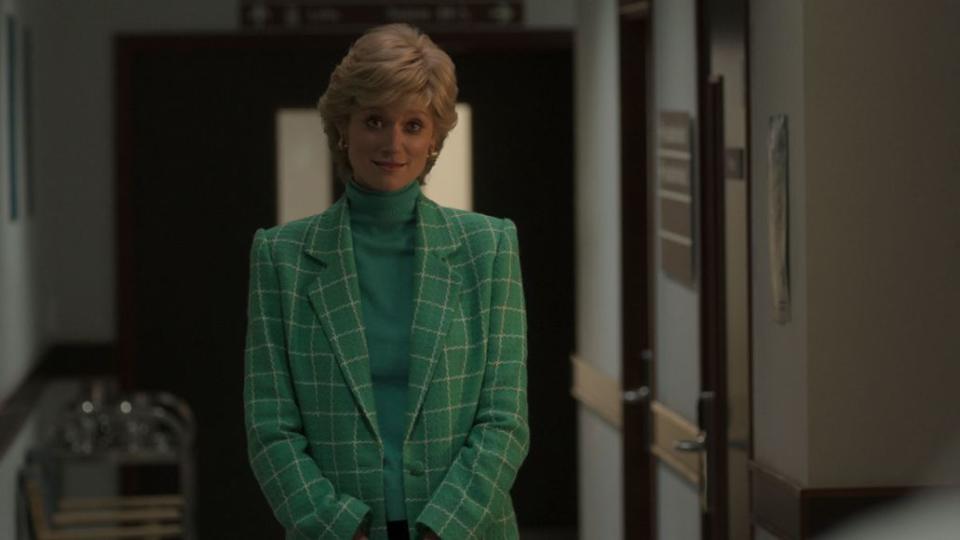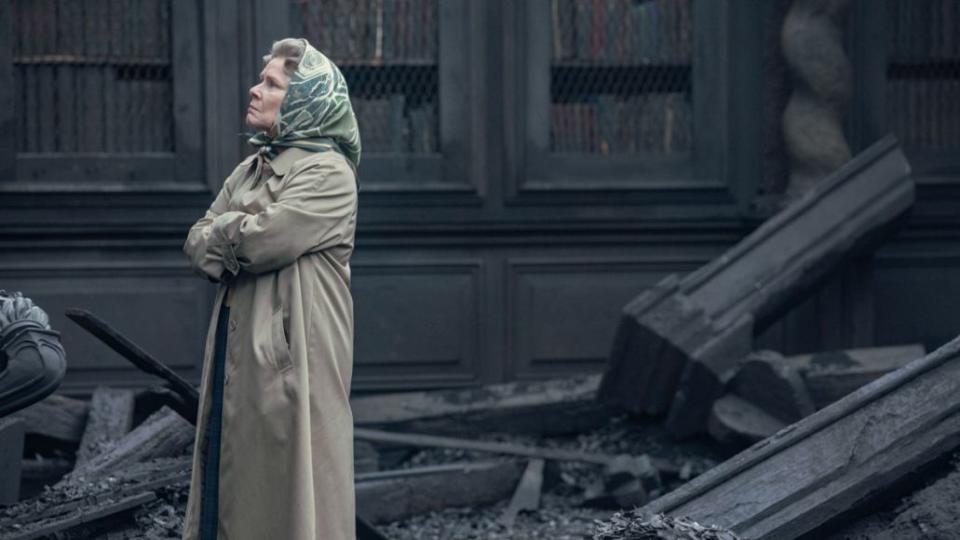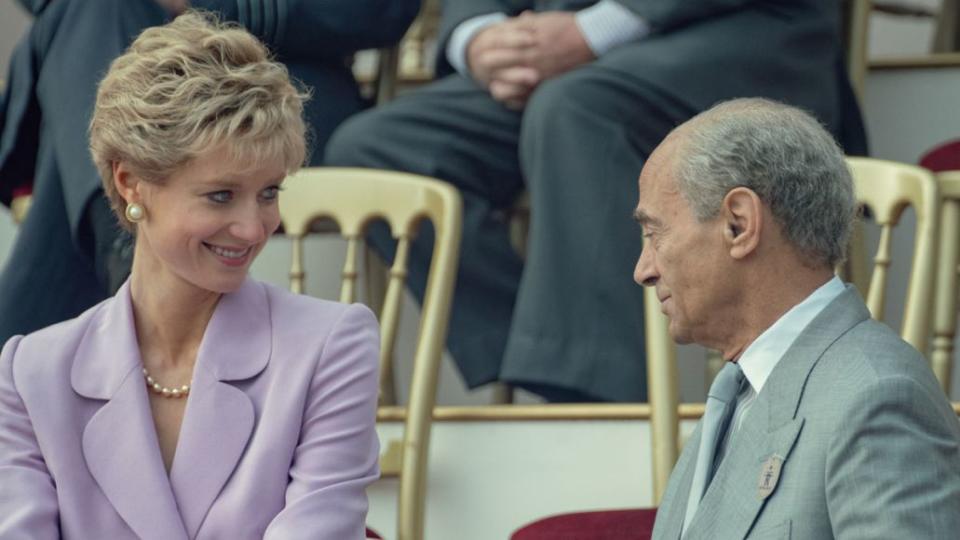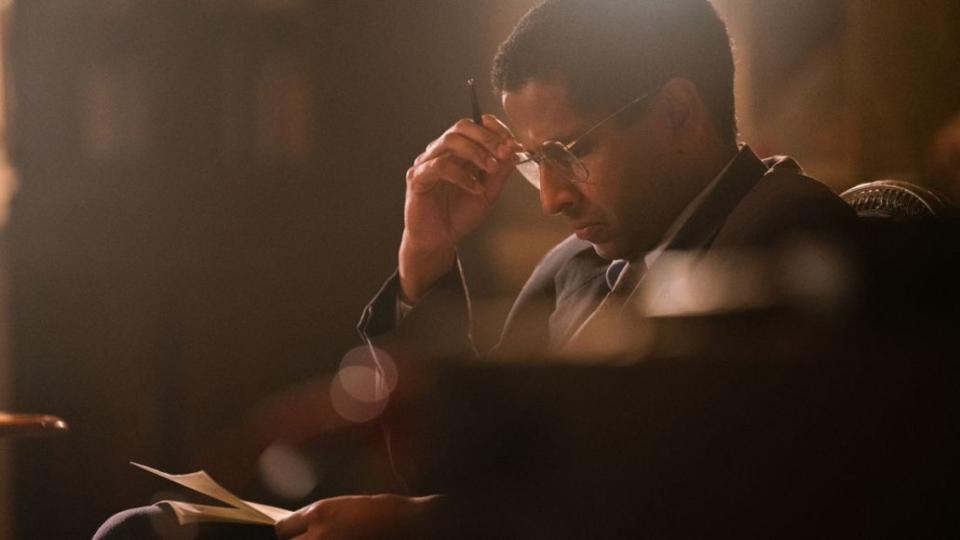The Crown Season 5: What’s Fact and What’s Fiction In Netflix’s “Fictional Dramatization”
- Oops!Something went wrong.Please try again later.
- Oops!Something went wrong.Please try again later.
- Oops!Something went wrong.Please try again later.
The post The Crown Season 5: What’s Fact and What’s Fiction In Netflix’s “Fictional Dramatization” appeared first on Consequence.
It seems to bother far too many British newspapers that The Crown, which recently premiered its fifth season on Netflix, might not be 100% historically accurate. While biopics often inspire debates around their veracity and the appropriateness of such dramatizations, there’s something about this show that’s made a lot of people very upset: Royalists (and Judi Dench?!) have decried The Crown as cruel to the poor institutional monarchy of Great Britain.
Some have worried it may tarnish the reputation of the new King if we’re all reminded of little things like how Princess Diana was treated or his version of dirty talk, and the whole hubbub has gotten so heated that politicians even demanded “health warnings” before each episode to ensure us naïve viewers knew the show wasn’t real. Netflix responded, perhaps sardonically, by adding a disclaimer to the season’s trailer.
It’s patently ridiculous, of course, but another reminder of how much The Crown has revived worldwide interest in the Windsors, particularly during a time of major flux for the family. It’s not achingly faithful to history (how could it be?) but the Netflix series has always been strong in capturing the specific aura of the royals and the political machinations behind the family business.
Season 5 dives further into the wheelings and dealings of The Firm during a period of immense crisis: multiple divorces, political strain, and public revolt against the monarchy. With so many controversies to cover, there are sure to be questions over how accurate this new season is. We look into some of the biggest questions of The Crown — and what actually happened.
[Editor’s note: The following contains spoilers through the Season 5 finale of The Crown, “Decommissioned.”]
Did Diana Work on a Book About Herself with Andrew Morton?
Towards the end of her marriage to then-Prince Charles, Princess Diana chose to break the cardinal rule of royal life and tell all to a journalist, the biographer Andrew Morton. The series shows Diana (played by Elizabeth Debicki) recording herself answering his questions, her extremely revealing answers to which were then passed onto Morton via a mutual friend. The resulting book, Diana: Her True Story, became a worldwide bestseller, and it wasn’t exactly a secret that Diana herself was involved with its creation.
In 1997, following Diana’s death, Morton re-released the biography with an acknowledgement of Diana’s role as the book’s main source of information. This led to many accusing him of exploiting the tragedy of her death. Since then, he’s written unauthorized biographies on Prince William and Meghan Markle, both of which have been scrutinized for their mistruths.

The Crown (Netflix)
Did Charles Really Make That Comment About Camilla’s Tampon?
There are few moments so infamous and baffling in the history of the Windsors as when the then-Prince Charles’ (played by Dominic West) dirty talk with his mistress-turned-Queen consort Camilla (Olivia Williams) was revealed to the world. In 1993, a transcript from a phone call between the pair was printed in the newspaper People, detailing an explicit six-minute call wherein Charles wished to be reincarnated as Camilla’s Tampax tampon.
It’s excruciating to listen to when The Crown tackles it, although it’s not entirely positioned as a moment of parody. The show has remained by and large pretty sympathetic towards Charles’ predicament as a man unable to marry the woman he loved. Their late night phone calls are often sad and lonely, not the stuff of passionate affairs. Even the tampon moment is seen more as another symptom of Charles’ stifled emotions after decades without the chance to reveal them. They’re joking about the Tampax stuff but also not really. It’s almost sweet, a moment of two middle-aged lovers trying to make each other happy.
But yes, it’s still super weird.
Did the Sunday Times Suggest the Queen Should Abdicate?
In Episode 1, the Sunday Times, one of the biggest and most royal-friendly papers in the UK, publishes a front page story suggesting that the Queen (played by Imelda Staunton) should perhaps abdicate in favor of Charles. It’s depicted here as something Charles is, at the very least, encouraging of. He even goes so far as to take a secret meeting with Prime Minister John Major (Jonny Lee Miller) to suggest the idea of abdication.
While there’s no evidence that such a meeting took place (and Major denies it), questions of whether or not the Queen should have stepped down weren’t uncommon over the past three decades of her reign. In 2013, a Sunday Times poll showed that, for the first time ever, only a minority of voters believed the Queen should carry on as monarch if she became too ill to perform in public. That, of course, never happened — and there’s also no evidence that such a headline was ever published at the time depicted on The Crown.
Was the Queen Truly That Upset Over a Royal Yacht?
In 1997, the Royal Yacht Britannia was decommissioned after 43 years of service. The Conservative government had announced that the costs of refitting the boat were too expensive and an unnecessary drain on British finances. As shown in The Crown, this issue is especially painful for the Queen, who considered the Britannia one of her most precious privileges, a home away from home. She practically demands the PM John Major’s government foot the bill for repairs, a symbol of her seeming lack of connection to the public during a recession.
It is true that the Queen prized the Britannia, and that she was furious the costs of its upkeep became a hot button political issue. During the 1997 general election, the Conservative government committed itself to replacing the Royal Yacht if re-elected. They lost, and when the yacht was finally decommissioned, the Queen publicly shed a tear, one of the rare moments she displayed unfettered emotion in public.
Was 1992 the Queen’s Worst Year Ever?

The Crown (Netflix)
In 1992, the Queen delivered what the series describes as “an unprecedentedly frank expression of personal sadness and regret” following what became known as her annus horribilis, a.k.a. her worst year. Over the course of twelve months, Charles and Diana announced their split, as did Prince Andrew and Sarah Ferguson. Princess Anne finalized her divorce from Mark Phillips, a book was released detailing Diana’s dark personal life, then, to top it all off, a fire engulfed Windsor Castle.
All of this, and much more, happened (yes, Sarah really was photographed on holiday with her lover sucking on her toes)! It was seen as unexpectedly candid for the Queen to not only be so honest but to admit that the monarchy was not above reproach, especially at a time when its status with the British public was rather messy.
Did Mohamed Al-Fayed Employ the Duke of Windsor’s Valet?
Episode 3 is dedicated to Mohamed Al-Fayed (played in the series by Salim Dau), the Egyptian businessman who bought the French Ritz Hotel and, at one point, was the owner of the department store Harrods. His rise from street merchant to multi-billionaire is shown, offering a contrast to the old money power of the British royals, with whom he seems to be fascinated.
This becomes especially heated once Diana strikes up a romance with al-Fayed’s son, Dodi. The Crown depicts his eagerness to rub shoulders with the Queen as equal parts impressive and desperate, best exemplified by his choice to hire the former valet of the exiled Duke of Windsor.
Sydney Johnson was the long-time valet for the former King Edward VIII and his wife Wallis Simpson during their decades’ long exile in Paris. A Bahamian, Johnson was hired at the age of 16 during World War II while the Duke was the governor of the island. He remained in the Duke’s employment until his death in 1972. The Crown briefly introduced Johnson in the third season, but here, he is given more screentime: We first see him being side-lined at a party hosted by the al-Fayeds, assumedly because of his race. Mohamed then employs him as his own valet so that he can learn the ways of kings.
Johnson did work for al-Fayed but there’s no evidence that he was a key player in molding his boss’s fascination with the Windsors. Al-Fayed did take up the lease on the French villa where the Windsors resided and renovated it. He did not, as the show depicts, then offer to return all of the royals’ possessions to them. In real life, he actually auctioned them off in 1998, the year after Diana and Dodi’s deaths. Members of the British Royal Family were believed to have purchased items in the sale, which included the desk at which Edward had abdicated in 1936.

The Crown (Netflix)
Did George V Deny the Romanovs Safe Passage to Britain?
In the season’s sixth episode, we flash back to the 1910s and the rule of King George V, the grandfather of Elizabeth II. He is shown (with a parrot on his shoulder) considering an offer from the Prime Minister to allow the Russian Tsar, Nicholas II of the Romanovs, and his family safe passage to Britain during the ongoing war with the Bolsheviks. It’s a deal he rejects, worried that doing so would lead to political unease.
The Romanovs were later brutally killed, a moment depicted in the show with startling rawness and contrasted with George V on a care-free shooting trip. The Duke of Windsor would later write that his father “had personally planned to rescue him [Nicholas II] with a British cruiser but in some way the plan was blocked.” Yet we now know that George V played a more active role in the decision. George V’s private secretary, Lord Stamfordham, feared an uprising against the monarchy, as the Czar was unpopular among Brits.
Did Prince Philip Have a Companion?
Rather than his wife, this season Prince Phillip (played by Jonathan Pryce) spends most of his time with Penelope Knatchbull, Lady Romsey (played by Natascha McElhone). Married to his godson, Lord Romsey, Phillip is shown striking up a friendship with Penny after the death of her youngest child from cancer. The pair form a bond that leads the Queen to fear a break in her marriage.
Now known as Penelope Knatchbull, Countess Mountbatten of Burma, Penny Romsey remains close to the Windsors. She was particularly close to Prince Philip, often participating in carriage driving competitions with him. While rumors often swirled that their friendship was romantically inclined, that was never confirmed and the series itself does not depict it as such.
Did Martin Bashir Fake Bank Statements to Land the Princess Diana Interview?
Following Charles’ interview, Diana is shown eager to tell her side of the story and find a way out of the liminal space she’s found herself as a royal on the way out of the family. She ends up choosing the BBC over flashier American offers, speaking to ambitious journalist Martin Bashir (played by Prasanna Puwanarajah) and the Panorama series. She makes this choice after Bashir shows her forged bank statements that falsely claimed that people close to Diana, including her former private secretary Patrick Jephson, had been paid to spy on her.
These dirty tricks were real, and were revealed in 2020 by an independent inquiry at the BBC. Prince William would later claim that the lies told to his mother by Bashir and the BBC had contributed to her sense of “fear, paranoia and isolation.” The Crown certainly depicts Diana’s sense of unease that she’s being watched prior to Bashir’s meddling.

The Crown (Netflix)
Is the Prince’s Trust a Real Charity (and Is It a Good Charity?)
Charles’ machinations to modernize the monarchy involve placing himself at the center of this change. If the Queen is from a different time, he is supposed to be the face of the future. That, as the series shows, isn’t exactly a message the public has enthusiastically embraced, long before he divorced Princess Diana.
The season, however, also gives an immensely sympathetic arc to Charles as it pertains to some of the work he did to assert his independence from The Firm, most notably his charity work with The Prince’s Trust. In one episode, Charles is shown surrounded by smiling and supportive young people of all races as he explains his work. A coda before the end credits also offers true-life details on the help the trust has provided to millions of young people.
Charles III founded The Prince’s Trust in 1976. Its primary objective is to “promote by all charitable means the mental, spiritual, moral and physical development and improvement of young people” aged between 11 and 30. According to the charity’s own numbers from their website, The Trust “has returned £1.4 billion in benefits to society through its help for disadvantaged young people over the last 10 years alone.” The Prince’s Trust is arguably one of the most well-known charities in the UK and has celebrity ambassadors including Tom Hardy and Benedict Cumberbatch.
Was That Really Diana’s Revenge Dress?
We all know that dress, the short and shoulder-bearing black number that Diana wore in 1994. It even has its own Wikipedia page, listed as the “Revenge Dress.” Diana is shown wearing the Christina Stamblolian evening gown to a benefit at the Serpentine Gallery in Kensington Gardens, which did happen. Here, it’s positioned specifically as her response to her estranged husband.
On the night of the dinner, a TV interview with Charles was broadcast where he admitted for the first time to having been unfaithful. Diana herself never confirmed if the dress was a specific fuck you to her ex, although the ambiguity around that detail has only strengthened its allure.
The Crown Season 5 is streaming now on Netflix.
The Crown Season 5: What’s Fact and What’s Fiction In Netflix’s “Fictional Dramatization”
Kayleigh Donaldson
Popular Posts
Rick Ross Denies Being Hoarder While Showing Off Mansion Filled with Clothes and Shoes
Eminem Celebrates Rock and Roll Hall of Fame Induction: "I'm Probably Not Supposed to Be Here"
Hozier on His New Song for God of War: Ragnarök, "Blood Upon the Snow": Exclusive
Joe Walsh on Honoring Taylor Hawkins, Reuniting James Gang, and Learning From Pete Townshend

